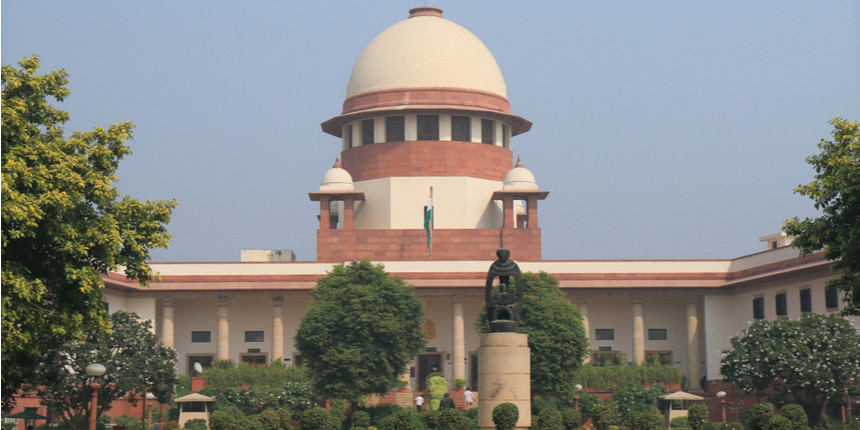Supreme Court dismisses plea against DMK’s anti-NEET campaign in Tamil Nadu
SC says students are informed enough to see through such campaigns against national-level examinations.
Most Scoring concepts for NEET
This ebook serves as a valuable study guide for NEET exams, specifically designed to assist students in light of recent changes and the removal of certain topics from the NEET exam.
Download EBook
Vikas Kumar Pandit | January 2, 2024 | 05:30 PM IST
NEW DELHI: The Supreme Court dismissed a petition challenging the Dravida Munnetra Kazhagam (DMK) party's signature drive in Tamil Nadu schools against the National Eligibility Cum Entrance Test (NEET) on January 2, as per Live Law. NEET is India's pre-medical entrance exam for individuals seeking admission to government and private medical institutions.
NEET 2024: Cutoff (OBC, SC, ST & General Category)
NEET 2024 Admission Guidance: Personalised | Study Abroad
NEET 2025: Syllabus | Most Scoring concepts | NEET PYQ's (2015-24)
A bench comprising Justices Surya Kant and KV Viswanathan stated that today’s students are informed enough to see through such anti-national-level test activities. According to Justice Kant, such a campaign against a national-level test with central planning will not affect students, therefore it is not an issue.
The campaign was launched by the DMK, led by Tamil Nadu youth welfare and sports development minister Udayanidhi Stalin. According to reports, the signatures gathered for the campaign would be delivered to president Draupadi Murmu.
Tamil Nadu sports minister Udhayanidhi Stalin began the DMK's signature campaign 'NEET Vilaku, Naam Ilakku' to collect 50 lakh signatures against NEET in 50 days. Udhayanidhi launched the campaign by signing his name against NEET on a digital screen, while CM Stalin registered the first sign via postal ballot.
"By this act, Students get disturbed and later they may have to face the NEET exams, the students may get depressed and end up in mental agony and spoil their career," the petition said.
The Supreme Court also heard a petition from the DMK-led state of Tamil Nadu, which challenged the legality of NEET. Tamil Nadu has claimed that the NEET violates federalism by removing the states' ability to accept candidates for government seats in medical colleges.
Furthermore, the original suit claims that the NEET exam violates the right to equality under Article 14 of the Constitution because it has harmed students in Tamil Nadu, particularly those from rural areas and students from State-board affiliated schools who cannot afford to attend entrance coaching centres.
Follow us for the latest education news on colleges and universities, admission, courses, exams, research, education policies, study abroad and more..
To get in touch, write to us at news@careers360.com.